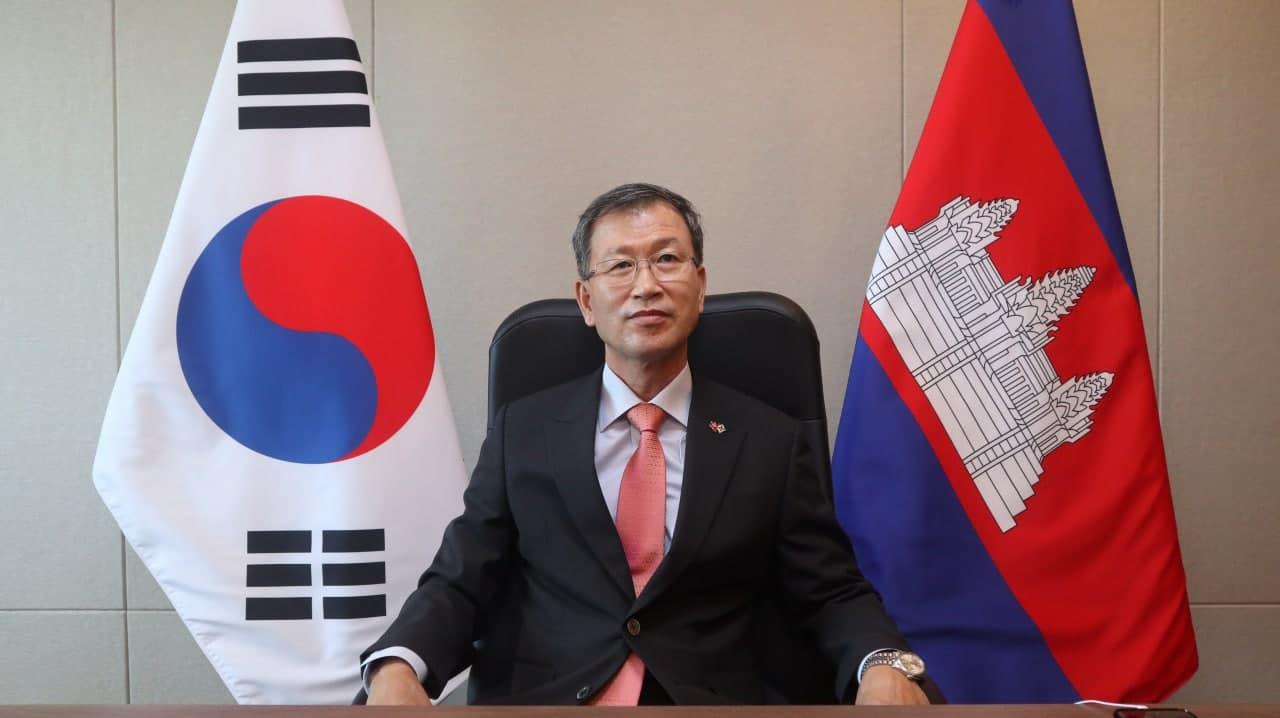Phnom Penh (FN), May 28 – The earth and the peoples on the planet are suffering as a result of worsening climate change. And the reality is that this climate change is caused principally by human activities. According to the World Meteorological Organization’s report on climate change in 2020, the global mean temperature has risen by 1.2 degrees Celsius above pre-industrial levels (the 1850 to 1900 baseline). 2020 is likely to be one of the three warmest years on record globally and the past six years from 2015 to 2020 are likely to be the six warmest on record. In 2019, the concentration of carbon dioxide reached a new high at more than 410 parts per million (ppm) from 270 to 280 ppm levels in the pre-industrial era, despite a slight decrease in the annual growth rate of the concentration of carbon dioxide in the atmosphere related to measures taken in response to the COVID19 pandemic in 2020.
Parts of Southeast Asia experienced severe flooding in the midst of global climate change in October and November last year. The area most heavily impacted was central Vietnam, where heavy rains of the Northeast monsoon were exacerbated by a succession of tropical cyclones. The flooding also extended further west into Cambodia. Moreover, severe drought affected many parts of South America and there were a number of large wildfires raged across the Western United States and Eastern Australia in 2020.
Cambodia is endowed with a rich natural resource base - this is key for food security and for the very livelihoods of the people. Yet, it is threatened by changing climatic conditions. In particular, the changing climatic conditions present an ongoing threat to sustainable development in the country, which depends heavily on the Mekong River and Tonle Sap basins. These basins are characterized by a flood-pulse hydrology with significant fluctuations in water levels between wet and dry seasons. The flood-pulse system supports flooded forests, grasslands, and wetlands as well as the world’s most diverse and productive inland fisheries. It also largely supplies the country’s freshwater resources for agriculture. Agriculture and fisheries, which account for 27 percent and 12 percent of GDP respectively, are key in food security in Cambodia and in the very livelihoods of the Cambodian people.
In response to the global effort to address climate change, the Republic of Korea has announced ambitious plans to achieve its target of carbon neutrality by 2050. Through the Green New Deal announced last year, the Korean government plans to invest US$62 billion in short- and long-term projects to help the economy recover from the slowdown resulting from COVID-19. Some of its plans include converting the country’s largely carbon-intensive industries into a low-carbon system and promoting the use of non-fossil energy sources such as solar, wind, and hydroelectric energy.
Against this backdrop, the Republic of Korea will host the Second P4G Summit virtually on May 30 and 31 this year, under the theme of “Inclusive Green Recovery towards Carbon Neutrality.” P4G, standing for Partnering for Green Growth and the Global Goals 2030, aims to accelerate solutions on the five main P4G sectors (food, water, energy, cities, and circular economy). These are closely interlinked with the UN Sustainable Development Goals and are important elements in the global response to climate change.
The P4G Seoul Summit will generate renewed momentum for discussions on key issues as countries prepare for the 26th UN Climate Change Conference of the Parties (COP26), which is to be held in Glasgow, the United Kingdom, in November this year. The Seoul Summit will include the Leaders’ Dialogue comprising live discussions among leaders, and the Leaders’ Session, where pre-recorded video messages by the Leaders will be presented. President Moon Jae-in, Prime Minister Hun Sen and some 60 Heads of State and leaders of international organizations will participate in the summit.
The Leaders’ Dialogue and Session can be viewed by the public through the 2021 P4G Seoul Summit Virtual Venue.
We believe that the P4G Seoul Summit, engaging both the public and private sector in investing in transformative solutions, will provide a vital global platform for all key players to facilitate the collective action needed to address worsening climate change.
Park Heung-kyeong, Ambassador of Republic of Korea to the Kingdom of Cambodia.
=FRESH NEWS


